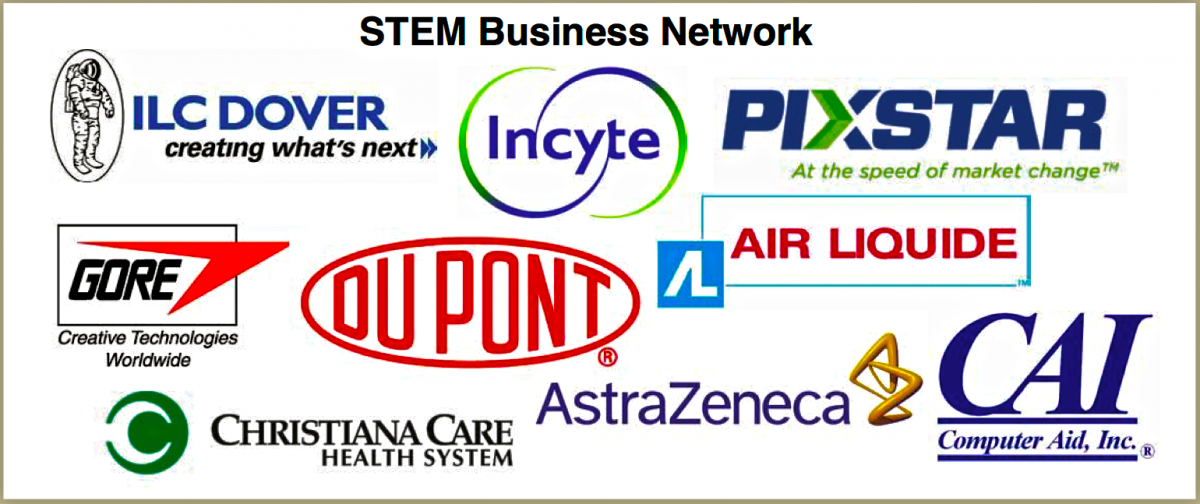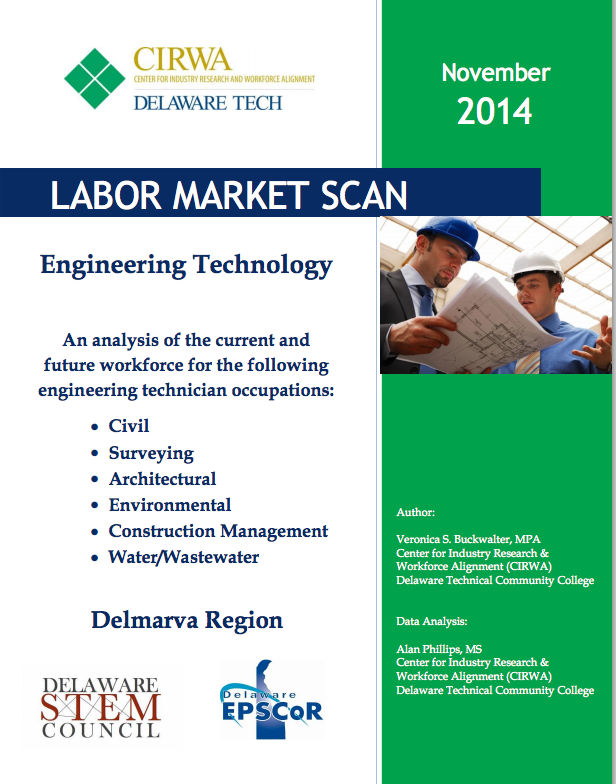Why STEM Education Matters to Business

“Growth in STEM jobs has been three times faster than in non-STEM jobs, and is a key component of economic strength for America and Delaware.” – William Merritt, CEO of InterDigital
The U.S. is in trouble and losing its competitive edge in STEM subjects as the rest of the world grows stronger. This change is threatening the development of our “knowledge capital” which is what creates jobs and fuels economic growth and innovation.
According to the Bureau of Labor Statistics, Occupational Outlook Handbook, 2010-11 Edition, STEM job creation over the next 10 years will outpace non-STEM jobs significantly, growing 17 percent, as compared to 9.8 percent for non-stem positions. Fastest growing jobs in the future are biomedical engineers, network systems and data communications analysts, and medical scientists – all requiring post-secondary degrees in a STEM field.
The National Commission on Mathematics and Science for the Twenty-first Century clearly states sixty percent of the new jobs that will open in the 21st century will require skills possessed by only 20 percent of the current workforce.
Without qualified worked to fill these jobs, businesses in the US and Delaware will be hard-pressed to continue operating locally and may need to move overseas where skilled labor is more readily available.
Innovation, Economic Growth and STEM
The news media, including the New York Times and Forbes Magazine, continues to report on the advances of other nations on innovation and economic growth. From Russia to Saudi Arabia, China top Singapore many nations are creating universities, medical science hubs, even entire cities focuses on educating and innovating in STEM fields. According to the TechNet website, China has replaced the U.S. as the world’s number one high-technology exporter and is now second in the world in publication of biomedical research articles.
With the diminishing of key STEM research and development, the U.S. is fast losing is competitive edge in STEM.
What Businesses Can Do
Bringing together business and education is the key to improving STEM education. According to a 2011 Harvard study, U.S. students are falling behind 31 countries in math proficiency alone. Enhancing our students’ math ability alone could increase GDP growth per capital by trillions of dollars over the next decade. U.S. business can get involved on a variety of different levels, including:
- Philanthropy – Improve the power of corporate philanthropy by supporting successful, high quality, scalable programs.
- Inspire – Seize the dreams of students, giving them a solid footing in STEM through a variety of volunteer efforts, including: mentoring, in classroom lecture, co-teaching, and awareness of postsecondary and career options.
- Advocate– Sponsor and endorse proven governmental policies and practices that improve student understanding, interest and mastery of STEM.
Interested in getting your company more involved with or participate on the Delaware STEM Business Network? Please see our ‘contact’ us page or Click Here.
Delaware STEM Business Network –
Is a group of local business representatives tasked with helping to improve the communication and collaboration between businesses and the education communities. Nine founding members were selected from organizations representing both large and small employers throughout the State, and from each discipline: Science, Technology, Engineering and Mathematics. The STEM Business Network meets monthly, and in addition to creating a charter and an operating mission, they are currently working on ways to connect businesses more directly with students in the classroom and their teachers.
In alphabetical order, the founding members of the Business Network are as follows:
Air Liquide – supplies industrial gases and services to various industries including medical, chemical and electronic manufacturers. Founded in 1902, it is the world’s second largest supplier of industrial gases by revenues and has operations in over 80 countries, including major operations in Newark, DE.
AstraZeneca – is the world’s seventh-largest pharmaceutical company – by 2012 prescription drug sales – and has operations in over 100 countries including Wilmington, DE.
Christiana Care Health System – is a network of private, non-profit hospitals providing health care services to all of Delaware and beyond. The system includes Wilmington Hospital and Christiana Hospital, as well as the Eugene du Pont Preventive Medicine & Rehabilitation Center, the Helen F. Graham Cancer Center, the Center for Heart & Vascular Health, Visiting Nurse Association and a wide range of outpatient and satellite services.
CAI – is a global IT services firm that is currently managing active engagements with over 100 Fortune 1000 companies and government agencies around the world including Wilmington and Newark, DE.
DuPont – is an American chemical company that was founded in July 1802. One of the largest chemical companies in the world, DuPont is headquarters in WIlmington, DE.
Incyte – is a Delaware pharmaceutical company headquartered in Wilmington, DE.
ILC Dover – is an American special engineering development and manufacturing company based in Frederica, Delaware. ILC specializes in the use of high-performance flexible materials, serving the aerospace, personal protection, and pharmaceutical industries.
Pixstar, Inc – Founded in 1998, Pixstar, Inc. (Pixstar) is a Delaware-based Business Intelligence (BI) and Information Architecture (IA) consulting firm that assist clients in resolving unique informational challenges.
W.L. Gore & Associates – is an American manufacturing company specializing in products derived from fluoropolymers. It is a privately held corporation headquartered in Newark, Delaware. It is best known as the developer of waterproof, breathable Gore–Tex fabrics.
Other Resources
Center for Industry Research & Workforce Alignment at Del Tech – CIRWA
The Center for Industry Research & Workforce Alignment, in close partnership with local businesses, government, and academia, delivers future-focused labor-market data and workforce information enabling educational institutions to make proactive and flexible decisions in response to the evolving workforce needs of Delaware’s competitive industries. The Center for Industry Research & Workforce Alignment strives to be Delaware’s key source of labor-market insight to enable educational institutions to better align their program and training resources to meet the skill demands of business and industry. See their November 2014 Report on STEM Careers in the DelMarva Area.
Tapping America’s Potential Coalition – Business to Education
15 prominent business organizations — representing America’s most innovative companies — recognized that U.S. economic and technological leadership, as well as future job creation and economic growth, depend on having a workforce grounded in the critical fields of science, technology, engineering and mathematics (STEM). The organizations created the “Tapping America’s Potential” (TAP) coalition and established a national goal of doubling the number of U.S. STEM graduates with bachelor’s degrees. In its initial policy statement, TAP laid out a series of policy solutions that would help America reach this goal and prepare American workers for the 21st century economy.
Delaware SPaRC – Success Plans and Roads to Careers (SPaRC) program is a partnership between the business community, educational system and community service organizations, the effort aims to build strong student success plans. SPARC functions as a community-development program that helps students and people entering the workforce become career ready. This collaborative effort of the Delaware Department of Education, Delaware Business Roundtable Education Committee and United Way of Delaware offers powerful tools that enable connections between local employers and young people exploring their career options.

Dow Employees at a June 2015 Science Day Event in Wilmington Delaware. Hosted by the Blue Rocks.


Recent Comments